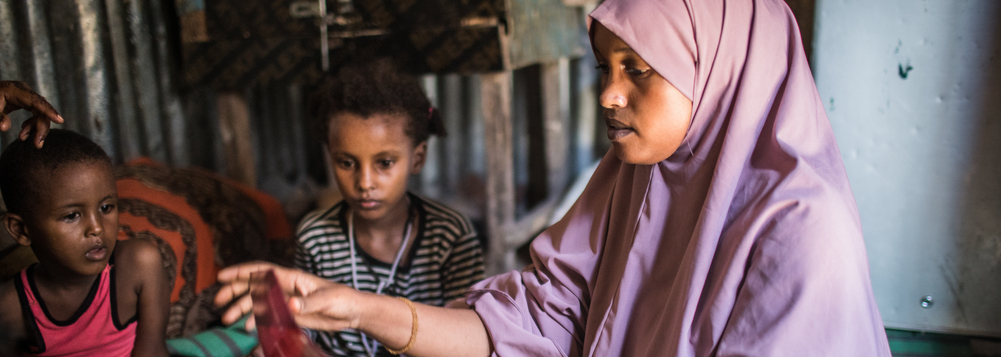
Dela
Improving the quality of community-based care in remote locations through technology
Dela aims to be an open-source mobile application that connects community health workers and their supervisors with a consistent channel of communication, to improve the quality of services delivered through supportive remote supervision.
The International Rescue Committee (IRC) works with a network of about 15,000 community health workers in over 25 countries around the world. Community health workers are usually volunteers associated with the local healthcare system. They bridge the gap between health facility personnel and community members by fostering credibility through their status in the community. Although they do not have formal training, community health workers are often the first line of defense against preventable child deaths, particularly where formal health facilities are inaccessible.
One systemic issue that poses a challenge in community health programs is the supervision of community health workers. Community health workers are often located long distances from health facilities and operate for long periods of time without their supervisors observing their work. In addition, most supervision visits often focus on administrative matters instead of focusing on practical skills, such as direct observation of sick child consultations and coaching them to improve the quality of care. As a result, they may be unaware of mistakes they are making and these may go unnoticed by their supervisors. The risks of inadequate supervision can lead to misdiagnosis and compromise the treatment of the most common causes of death in children under five: diarrhea, malaria, and pneumonia.
COVID-19 has made it essential for supervisors and community health workers to facilitate an open channel of communication for knowledge sharing without necessarily bringing them physically together for formal training and supervision. The design of an open source mobile application called Dela will enable community health workers to receive virtual supervision and feedback. In partnership with IRC’s Health Technical Unit, the app aims to work offline to enable community health workers to capture video and audio of their consultations with sick children. That video is then sent to their supervisors, who can provide feedback and advice based upon what they’ve seen in the video. In particular, supervisors will be able to share instructional videos on how to perform essential skills that they see the community health worker may need to review. The easy-to-use app will be designed to work with limited access to phone service, and with limited digital literacy skills by using voice-over functionality.
Dela aims to solve three key supervision challenges in community-based health delivery systems:
- Insufficient follow-up. Dela allows for knowledge sharing, and can help supervisors use performance data to identify gaps in a community health worker’s basic training by sending pre-recorded and existing content to help workers retain, refresh, and improve their skills.
- Limited ability to course correct. Through video messaging, Dela enables consistent communication between community health workers and supervisors so supervisors can observe actual household visits. This means supervisors can catch and resolve issues early and improve quality of services delivered.
- Performance recognition. Dela tracks individual community health worker performance over time, acknowledges progress, and showcases their accomplishments to themselves and their supervisors. This allows their supervisors to focus their attention on areas of improvement and gives community health workers positive reinforcement for their work.
Project Timeline
Prototyping kicks off in Liberia and Democratic Republic of Congo
IRC has formed partnerships with Medic Mobile and Think-It to prototype and test the Dela concept with community health workers and their supervisors to see how we can maximize their experience and incentivize long-term use. We will be looking at overcoming challenges around connectivity, costs of data transfers, and alternatives to video, such as Interactive Voice Response systems and chat bots.
Design sprint launches
A group of technical health experts, designers, and program staff from the IRC remotely conducted a design sprint focused on Liberia. The objective of the sprint was to identify barriers that prevent community health workers from safely and effectively delivering life-saving services during the pandemic (and beyond) and to identify solutions to overcome those barriers. The concept for the Dela app came out of this sprint.